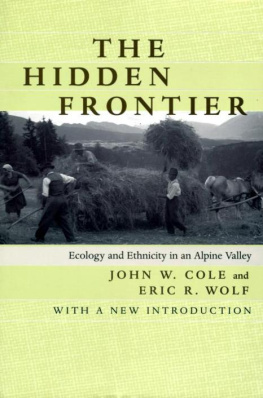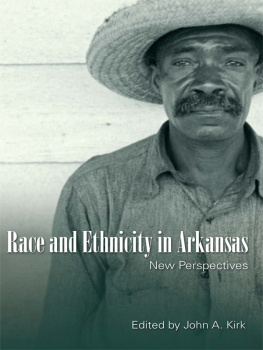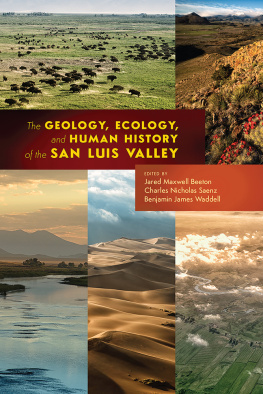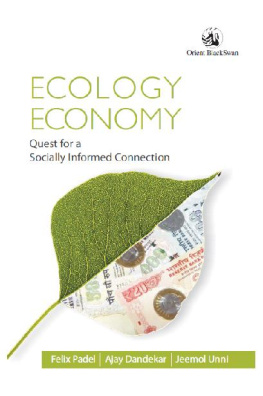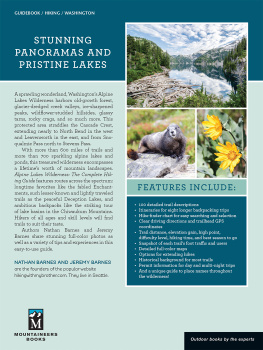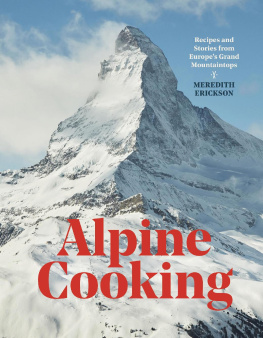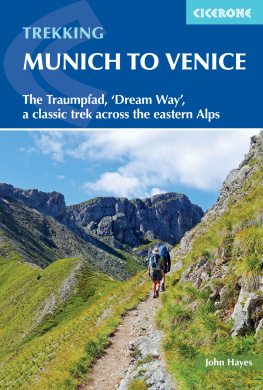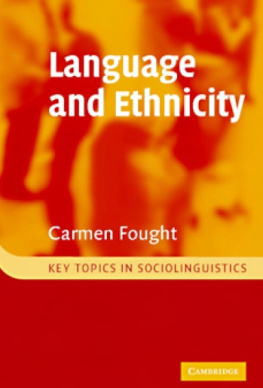John W. Cole
Eric R. Wolf




For Ellan, from John For Katia, from Eric
xi
Chapter 1
Chapter 25
Chapter 50
Chapter 64
Chapter 96
Chapter 119
Chapter 153
Chapter 175
Chapter 206
Chapter 233
Chapter 263
Appendix 4. Interethnic Marriages

In opening this book our readers will discover that both in the presentation and analysis of our materials we have followed a scheme somewhat at, variance with the ways usually followed by anthropologists. We strongly believe that the study of small populations which form components of complex societies must take account of that complexity before the interpretation of what happens "on the ground" can become meaningful. Thus we believe that anthropology cannot do without history, for it is only through an anthropologically informed historical account of the genesis and development of the forces impinging upon our social and cultural microcosms that we can arrive at an adequate assessment of the ways in which these forces act upon each other in the present. We thus begin with history: first with an account of the forging of Tyrolese identity, followed by a discussion of how that identity was subjected to the contradictory pull of rival nationalist movements. We then move, in Chapter IV, to an historical account of the economic forces at work in shaping the life of the mountain peasantry. In Chapter V we attempt to state what we know of past happenings in the Anaunia proper, in order to sketch the historical background of the two communities that we studied in the field. Chapters VI and VII then deal with the problems of wresting a living from a forbidding environment and a marginal economy. In Chapter VIII we examine the inheritance process, those mechanisms which operate ecologically and socially to divide available resources among possible claimants. In Chapter IX we present our assessment of the changes that have affected both Tret and St. Felix during the economic upswing of the past two decades. This, in turn, leads us to an explication of the bonds of kinship, friendship, and neighborliness characteristic of the two communities. We return, in the last chapter, to a discussion, this time on the local level, of the ways in which contradictory political commitments pull people in opposite directions, despite their very similar ways of meeting the problems of survival and existence in a mountainous environment.

In the course of this study, which attempts to combine the methods of anthropological field work with the perspectives of history and political economy we have relied heavily on the assistance and inspiration granted us by numerous friends and colleagues in many different fields. Some of them provided us with valuable background information; others were generous with introductions. Among these we would like to thank especially Frank and Julie Fata, Emanuel Fenz, Prof. Raymond Firth, Dr. E. K. Francis, Prof. Luis Hechenbleik- ner, Dr. Franz Huter, Dr. Hans Kramer, John Martin, Dr. Norbert Mumelter, Prof. Tullio Tentori, Dr. Leo von Pretz, Dr. Guido G. Weigend, and Prof. Anton Zelger. We are heavily indebted to our friends in St. Felix and Tret, notably Alois Ausserer ("Pinterluis"), Livio Bertagnolli and family, Adele Dona, Martin Geiser ("Schmied") and family, Stephanie Geiser, Curate Bartolomaus Hillebrand, Josef Kofler ("Ludwigsepp"), and Emanuele Maninfior ("Mani"). We are thankful to the many archivists who allowed us to examine the documents in their charge, notably P. Tito of the Capuchin monastery in Cles and Don Alessandro Sartori. We acknowledge with pleasure the special stimulus received from fellow participants in two fieldwork conferences, sponsored by the Mediterranean Study Groups of the University of Michigan and of the London School of Economics-University of Kent at Aix-en-Provence in 1966 and at Canterbury in 1967. Raymond Grew, Roger McConochie, Donald Pitkin, Joyce Riegel- haupt, Roland Sarti, and H. Martin Wobst aided our work with criticism and suggestions. Sydel Silverman did much to bring the project to fruition; she queried our ideas and castigated our style and easy ways with punctuation. We are most grateful. We would also like to thank Foto Battisti in Fondo for aid with our attempts at photography, to Ruth Fair who typed our manuscript, and to Judy Hammond who drew our maps.
Our work would not have been possible without the financial support so generously granted us by various institutions. Eric R. Wolf's research in 1960-1961 was supported by a grant from the John Simon Guggenheim Foundation, and by a grant-in-aid from the Lichtstern Fund of the University of Chicago. His work in the area in 1962 was underwritten by funds from the Horace Rackham School of Graduate Studies of the University of Michigan and the Social Science Research Council. Subsequent visits to Tret and St. Felix were made possible by his tenure of a Career Development Award from the National Institute of Health (5 K02 MH 2543405). John W. Cole's initial stay during 1965-1967 had the support of a grant from the National Science Foundation, with supplementary grants during that period and again in 1969 offered by the Project for the Study of Social Networks in the Mediterranean Area of the University of Michigan and by Wayne State University. We are most thankful to all these institutions for their support, and hope that the present work in some small measure justifies the trust which they put in us during a decade of fieldwork and related research.

As this book moves toward republication after an interval of twenty-five years, we feel a certain pride in its accomplishments. It received very positive reviews when it first appeared, but its linkage of ecological issues to questions of ethnicity did not evoke the interest that they might receive today. Indeed, an editor at the time (explaining why a paperback edition was not to be published) said, "How many people do you expect to care about a bunch of Tyrolese on top of a mountain at 4,800 feet altitude?" Ecological studies by anthropologists were no longer novel, while the problems posed by the quest for ethnic identity and political assertion had not yet intruded into the consciousness of the general public.

